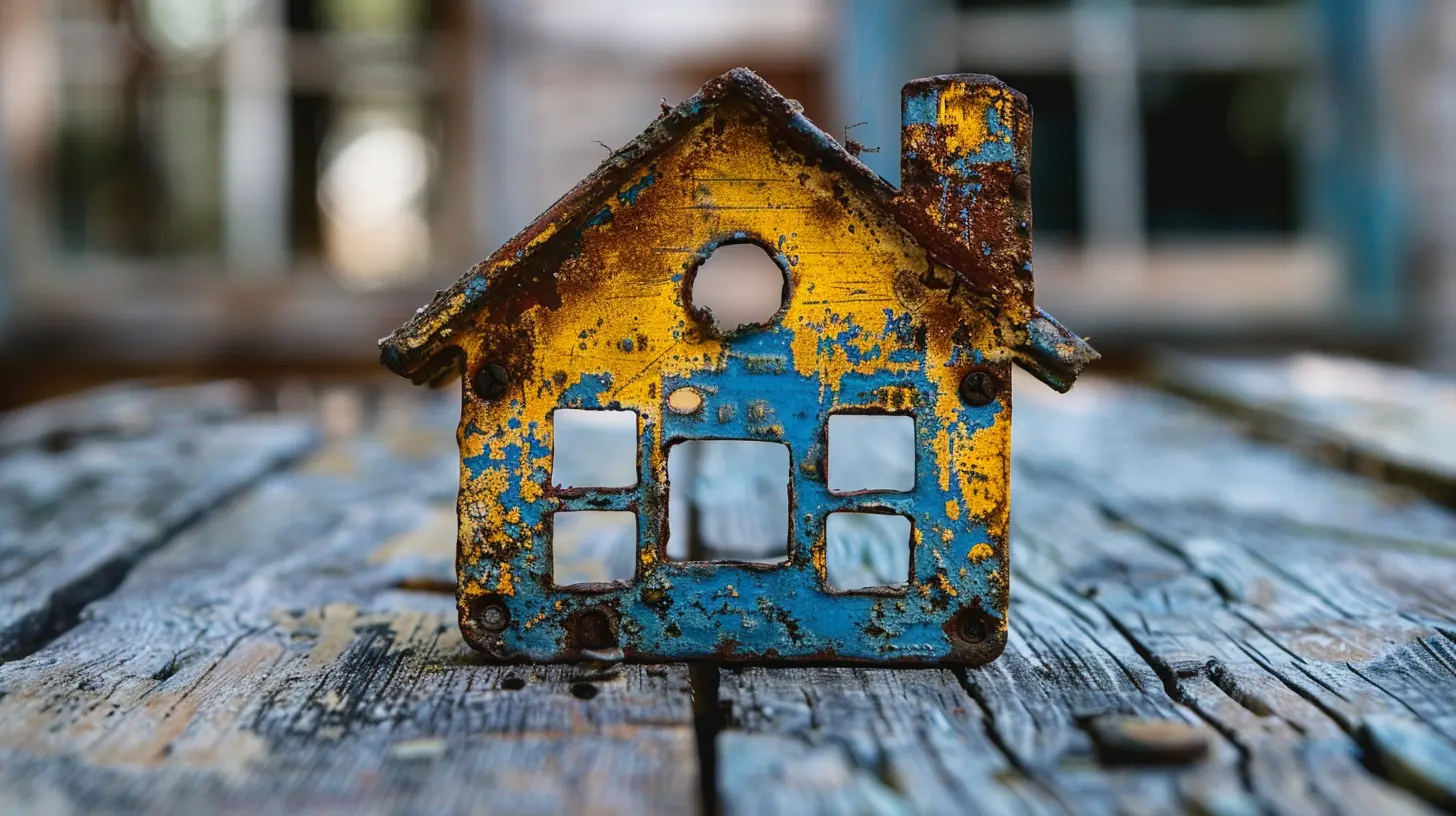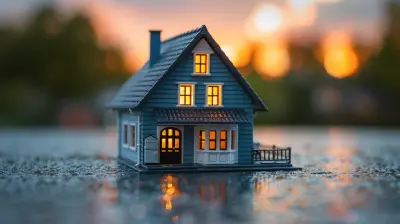14 March 2025
So, you’ve got a rental property. Maybe it’s a charming little place that’s seen better days, or maybe it’s new but showing early signs of wear and tear. Either way, the big question that keeps landlords awake at night is this: Should I renovate, or just repair?
Before you start pulling out your checkbook (or nervously avoiding it), let’s break this down. Think of your rental like a car. Sometimes, a quick oil change (repair) does the trick, and other times, you need a full engine overhaul (renovation). But how do you know which is which? Buckle up, landlord extraordinaire—we’re about to dive into the renovate vs. repair showdown! 
Repair or Renovate: What’s the Difference?
Repairs: The Quick Fixes
Repairs are like a Band-Aid. They don’t dramatically change the property, but they keep it running smoothly. They’re usually cheaper, faster, and mostly aim to fix damage rather than change anything structurally.Common rental repairs include:
- Fixing leaky faucets (drip, drip, goodbye!)
- Patching up holes in the walls (courtesy of an enthusiastic tenant moving furniture)
- Replacing broken appliances (RIP, old refrigerator)
- Fixing minor electrical or plumbing issues
- Replacing worn-out carpet or flooring in small sections
Renovations: The Glow-Up
Renovations, on the other hand, are a full-blown makeover. They enhance the property, often increasing its value, appeal, and possibly even the rent. Unlike repairs, renovations aren’t always necessary—but when done right, they pay for themselves in the long run.Common rental renovations include:
- Upgrading the kitchen (because avocado-green countertops aren’t retro—they’re tragic)
- Installing new flooring throughout the unit
- Adding a fresh coat of paint to modernize the space
- Renovating bathrooms (so tenants don’t feel like they’re showering in a 1970s horror movie)
- Enhancing curb appeal (hello, higher rental income!) 
When to Repair Your Rental Property
1. Cost vs. Benefit: Does It Make Sense?
If a small repair can extend the life of something for a few more years, it’s usually the better option. For example, a leaky faucet? Replace the washer. A busted cabinet hinge? A quick trip to the hardware store will save you the cost of a full kitchen remodel.2. Tenant Turnover: Keep It Quick
If a tenant just moved out and another is ready to move in, going for quick repairs ensures your unit isn’t sitting vacant (which means money in your pocket). Extensive renovations can take weeks, meaning lost rental income.3. Compliance & Safety Issues
If something is broken and dangerous, it’s a no-brainer—fix it. Electrical hazards, faulty plumbing, or a wobbly staircase railing? Those need immediate attention, no questions asked. But if a repair brings the property up to code without requiring a larger renovation, choose the simple fix.4. Small Aesthetic Fixes
Sometimes, less is more. A stained carpet might be an eyesore, but if the rest of the flooring is fine and a professional cleaning can do the trick, why spend thousands on a full replacement?
When to Renovate Your Rental Property
1. Outdated Interiors That Scare Away Tenants
If your rental still has shag carpet and wallpaper that looks like it belongs in a time capsule, your potential tenants might run for the hills. Sometimes, a modern upgrade is the only way to stay competitive in the rental market.2. Higher Rental Income Potential
A fresh renovation can allow you to increase rent prices. If your area’s rental rates are rising, but your outdated unit is stuck in the past, you could be losing money by not modernizing.3. Recurring Repairs That Never End
If you keep repairing the same thing over and over (like that pesky 10-year-old HVAC system that’s gobbling up maintenance costs), it might be cheaper in the long run to do a full upgrade instead.4. Property Value Boost
If you plan to sell your rental property down the road, investing in renovations can increase its overall value. Even small upgrades to kitchens and bathrooms can result in big returns when it’s time to sell.5. Tenant Retention & Satisfaction
Happy tenants are long-term tenants. If your competitors are offering sleek, updated spaces while yours feels like a time machine to 1992, you might find tenants looking elsewhere. A smart renovation can help keep them comfortable— and paying rent on time.
Keeping a Budget: Finding the Sweet Spot
It’s easy to get carried away with renovations. One minute, you’re replacing an old countertop, and the next, you’re planning a full HGTV-style home makeover. (Step away from the granite samples, please.)Ask yourself:
- Will this renovation increase rental income enough to justify the cost?
- Is the improvement necessary or just "nice to have"?
- Can I spread the renovations over time rather than doing it all at once?
Remember, the goal is to keep costs manageable while maintaining a property that attracts and retains tenants.
The Goldilocks Approach: Balance is Key
Every landlord faces the renovation vs. repair dilemma at some point. The solution? Strike a balance.- If a quick repair will do, don’t go overboard.
- If a renovation will pay off in the long run, don’t hesitate.
- And if your rental property looks like a haunted house, well… it might be time for a serious upgrade.
Upgrading your rental property doesn’t have to be a guessing game. With a little strategy, budgeting, and knowing when to fix vs. facelift, you’ll keep your tenants happy—and your wallet even happier.
Now go forth, landlord extraordinaire, and make that rental shine!









Sabina Hurst
In the delicate balance of upgrading rentals, discernment is key; thoughtful renovations enhance value and tenant satisfaction, while strategic repairs preserve integrity. Timing can transform a property’s future trajectory.
March 31, 2025 at 8:16 PM